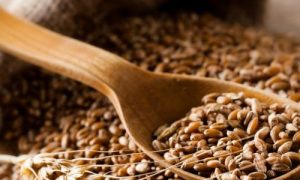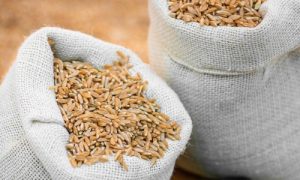Flour export policy reversed amid millers’ strike

Pakistan’s government has banned wheat imports and flour exports, citing a surplus. The move comes after farmers in Punjab protested unnecessary imports despite a bumper crop. The ban was imposed too late, as wheat imports continued through April, with 3.61 million tonnes imported in the previous fiscal year. Meanwhile, over 1,800 wheat flour mills have gone on strike against tax measures. Prime Minister Shehbaz Sharif has also called for the privatization of Passco, a state-owned grain trader, and restructuring of the Wheat Board to enhance crop yields and improve reporting mechanisms.
At the same time, a ban on wheat imports was imposed, which came too late for the country, particularly for farmers in Punjab who were protesting against unnecessary wheat imports despite a bumper crop.
The commerce ministry issued two notifications withdrawing the March 29 decision that allowed millers to export flour prepared from imported wheat. However, no data on the export of such flour was available on the Pakistan Bureau of Statistics’ (PBS) website. Export of wheat and its byproducts from locally produced wheat is already banned.
The local wheat price saw a dramatic decline during the caretaker government’s tenure, primarily due to imports by the private sector, including wheat flour millers.
Out of 65 total wheat importers, 17 were flour mills that also imported wheat. The government had previously formed a committee to investigate the issue, but it took two months to impose a ban on wheat imports, which was officially notified on July 12.
According to PBS data, wheat imports continued through April, but no imports were reported in May.
Since July 11, over 1,800 wheat flour mills have gone on strike to protest tax measures that they claim would increase their burden as they would have to work as FBR’s tax agents, collecting around Rs40 in advance tax from non-filer retailers on a 15kg sack of wheat flour. More than 90 per cent of wheat retailers are non-filers.
While the import of 3.61 million tonnes of wheat in the previous fiscal year may be a minor concern, the main issue remained improving the reporting mechanisms for wheat production and consumption in provincial agriculture departments and the federal food ministry.
The Punjab government initially told millers that they could acquire wheat for Rs4,700 per 40kg. However, millers began purchasing wheat on the open market at a substantially lower price. Some millers also imported wheat directly during the caretaker government.
Similar trends were observed in Khyber Pakhtunkhwa and Balochistan, where millers bought wheat from both the private sector and farmers directly at cheaper prices.
Passco privatisation
PM Shehbaz Sharif in a meeting on Friday called for devising a plan to privatise Passco, his office said in a statement. The premier directed the authorities concerned to prepare an action plan for Passco’s privatisation and instructed the restructuring of the Wheat Board.
Finance Minister Muhammad Aurangzeb, in his budget speech, hinted that the government would no longer play a role in commodity purchases.
PM Shehbaz said the restructured Wheat Board should include representatives of farmers, the Land Information Management System, and Passco.
He also called for effective measures to enhance the yield of wheat and other crops.
Source Link : https://www.dawn.com/news/1845529/flour-export-policy-reversed-amid-millers-strike
















